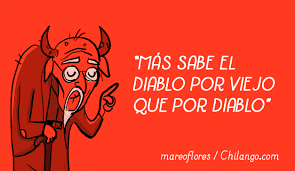Four Articles and a Poem
Weekly, I post four articles that I found significant and a poem accompanied by some comments about what we can learn from them. Our lives are enriched by seeing better. Each week, one article comes from the world of photography, a discipline that is about seeing. Another article comes from the world of technology, hence seeing something of the future. Another article takes up an aspect of our life together, seeing more clearly the other. Another article refers to faith, seeing the unseen. Finally, the weekly post concludes with a poem, because poetry is about seeing words whose arrangement allows us to see anew.
Among many notable events and articles this week, I have culled four, as usual: a short biography piece on Jake Olson, a favorite photographer from Nebraska, an interview with Angus Deaton, a reflection on our food choices, an article that speaks about how Pope Francis envisions cities in bringing about change.
"The Pulley"
By George Herbert
When God at first made man,
Having a glass of blessings standing by,
“Let us,” said he, “pour on him all we can.
Let the world’s riches, which dispersèd lie,
Contract into a span.”
So strength first made a way;
Then beauty flowed, then wisdom, honour, pleasure.
When almost all was out, God made a stay,
Perceiving that, alone of all his treasure,
Rest in the bottom lay.
“For if I should,” said he,
“Bestow this jewel also on my creature,
He would adore my gifts instead of me,
And rest in Nature, not the God of Nature;
So both should losers be.
“Yet let him keep the rest,
But keep them with repining restlessness;
Let him be rich and weary, that at least,
If goodness lead him not, yet weariness
May toss him to my breast.”
Among many notable events and articles this week, I have culled four, as usual: a short biography piece on Jake Olson, a favorite photographer from Nebraska, an interview with Angus Deaton, a reflection on our food choices, an article that speaks about how Pope Francis envisions cities in bringing about change.
- Jake Olson's Dramatic Recovery. Jake Olson, a Nebraskan, makes some of the finest portraits, landscapes, and fine art photographs with natural light. He has amazing work, some of my favorite is found here. The first image that I saw from him, Aging Storm, remains my favorite. The story of how Olson came to photography is worth reading.
- Five minutes with Angus Deaton: “If the rich can write the rules then we have a real problem”. In an interview with Joel Suss, Managing Editor of the British Politics and Policy at London School of Economics blog, Angus Deaton, the 2015 Nobel Laureate in Economic Sciences, sheds light on some of his work. The Nobel Prize, in this case, celebrates a whole career, in which he has used data to overturn sloppy assumptions, reimagined how we measure the world, and intertwined microeconomics and macroeconomics.
- Why your food choices are a political act. In this blog entry from the World Economic Fourm, Paweł Jarczewski reflects on the moral and political implications of our food choices. As powerful as our vote, our food choices have significant impact.
- Pope's visit highlights cities' moment. Pope Francis came and went. His visit was full of memorable moments, and, yet, the lasting impact of his visit depends upon us. How will we act upon the "homework" that he has left us? Keeping the Pope's visit before us is an essential act such that the visit bears fruit. This editorial by Bruce Katz and John Monahanin the Philadelphia Inquirer reminds us that: "Unlike the heads of most global institutions, Francis has made it clear that he sees our cities as agents for change in today’s world."
"The Pulley"
By George Herbert
When God at first made man,
Having a glass of blessings standing by,
“Let us,” said he, “pour on him all we can.
Let the world’s riches, which dispersèd lie,
Contract into a span.”
So strength first made a way;
Then beauty flowed, then wisdom, honour, pleasure.
When almost all was out, God made a stay,
Perceiving that, alone of all his treasure,
Rest in the bottom lay.
“For if I should,” said he,
“Bestow this jewel also on my creature,
He would adore my gifts instead of me,
And rest in Nature, not the God of Nature;
So both should losers be.
“Yet let him keep the rest,
But keep them with repining restlessness;
Let him be rich and weary, that at least,
If goodness lead him not, yet weariness
May toss him to my breast.”




Comments
Post a Comment